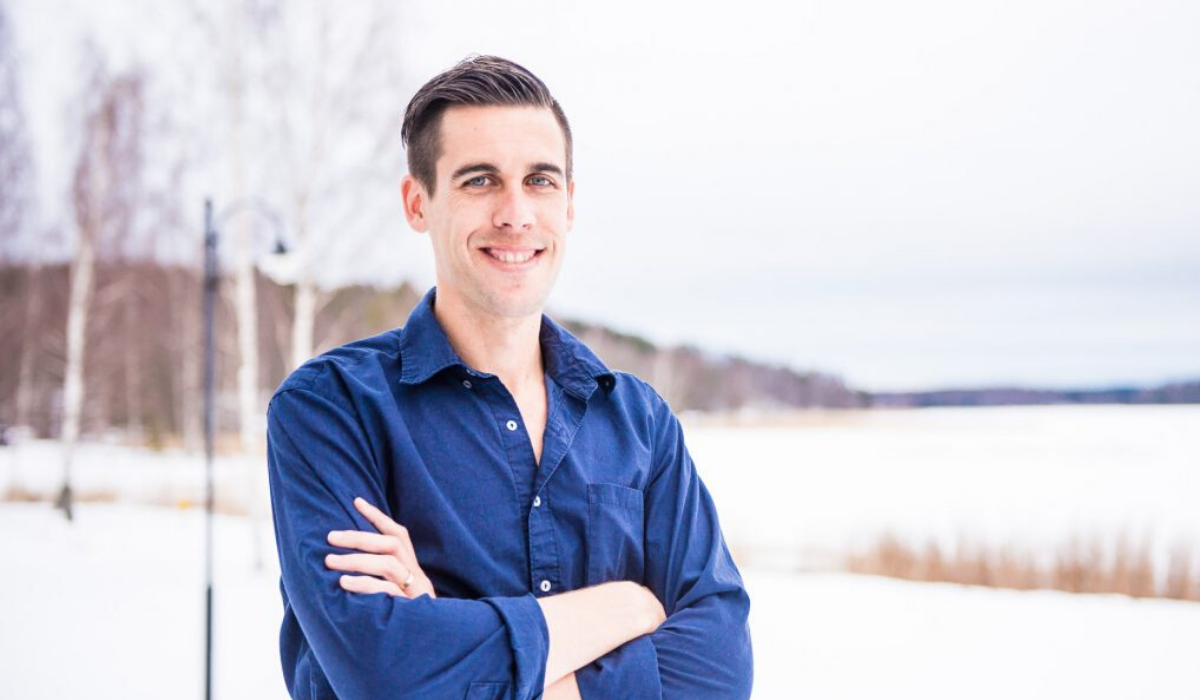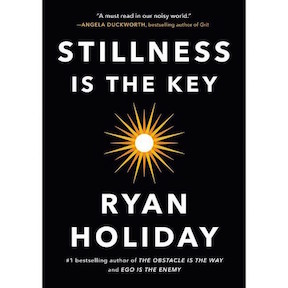The Art of Being Present

The following is an excerpt from “Stillness Is the Key” by Ryan Holiday
The decision in 2010 to title Marina Abramović’s four-decade retrospective at MoMA in New York City The Artist Is Present all but preordained the monumental performance that would come out of it. Naturally, Marina would have to be present in one way or another.
But no one would have dared think that she would literally be there . . . for all of it.
Who could conceive that a human could sit silently in a chair, completely still, for a total of 750 hours over 79 days directly across from 1,545 strangers, without aid, without distraction, without so much as a way to go to the bathroom? That she would want to do this? That she would pull it off?
As her former lover and collaborator, Ulay said when he was asked what he thought of the possibility, “I have no thoughts. Only respect.”
The performance was as simple as it was straightforward. Marina, aged sixty-three, her long hair braided and over her shoulder, walked into the cavernous room, sat down in a hard wooden chair, and simply stared at the person across from her. One after another they came, hour after hour, day in and day out, for nearly three months. Each time, she looked down, gathered herself, and then looked up afresh at the new face.
As Marina would say of her art, “The proposition here is just to empty the self. To be able to be present.”
Is it really that hard—to be present?
What’s so special about that?
No one who was in the audience, who sat across from her, would ask such questions. For those souls lucky enough to see the performance in person, it was a near-religious experience. To experience another person fully in the moment is a rare thing. To feel them engage with you, to be giving all their energy to you, as though there is nothing else that matters in the world, is rarer still. To see them do it for so long, so intensely?
Many viewers cried. Each one said the hours in line were worth it. It was like looking in a kind of mirror, where they could feel their own life for the first time.
Imagine: If Marina’s mind drifted, if she daydreamed, the person across from her could immediately sense that she was somewhere else. If she slowed her mind and body down too much, she might have fallen asleep. If she allowed for normal bodily sensations—hunger, discomfort, pain, the urge to go to the bathroom—it would be impossible not to move or get up. If she began to think of how much time was left in the day’s performance, time would slow to an intolerable crawl. So with monk-like discipline and warriorlike strength, she ignored these distractions to exist exclusively in the present moment. She had to be where her feet were; she had to care about the person across from her and the experience they were sharing more than anything else in the world.
“People don’t understand that the hardest thing is actually doing something that is close to nothing,” Abramović said about the performance. “It demands all of you . . . there is no object to hide behind. It’s just you.”
Being present demands all of us. It’s not nothing. It may be the hardest thing in the world.
As we stand on the podium, about to give a speech, our mind is focused not on our task but on what everyone will think of us. How does that not affect our performance? As we struggle with a crisis, our mind repeats on a loop just how unfair this is, how insane it is that it keeps happening and how it can’t go on. Why are we draining ourselves of essential emotional and mental energies right when we need them most?
Even during a quiet evening at home, all we’re thinking about is the list of improvements that need to be made. There may be a beautiful sunset, but instead of taking it in, we’re taking a picture of it.
We are not present . . . and so we miss out. On life. On being our best. On seeing what’s there.
Many of the people in line to see Marina Abramović’s performance accidentally illustrate this phenomenon. Rushing in as the doors opened, they zoomed past equally impressive pieces from her career so that they could be first for the “special” one. In line, they fidgeted endlessly and chatted with each other, trying to kill time as the hours ticked by. They napped, leaning up against one another. They checked their phones . . . and then checked them again. They planned what they would do when it was their turn and speculated about what it would be like. Some of them worked in secret on little stunts they hoped would bring them fifteen seconds of fame.
How much ordinary wonderfulness they closed their minds to.
It makes you wonder: After they had their transcendent experience with Marina—coming face-to-face with real presence— when they left the museum and walked out into the busy New York City street, did they breathe in anew the vibrant rhythm of the urban jungle, or, more likely, did they immediately resume their busy lives, full of distractions, anxiety, dreams, insecurities, and ego?
In short, did they do exactly what all of us do most of every single day?
We do not live in this moment. We, in fact, try desperately to get out of it—by thinking, doing, talking, worrying, remembering, hoping, whatever. We pay thousands of dollars to have a device in our pocket to ensure that we are never bored. We sign up for endless activities and obligations, chase money and accomplishments, all with the naïve belief that at the end of it will be happiness.
Tolstoy observed that love can’t exist off in the future. Love is only real if it’s happening right now. If you think about it, that’s true for basically everything we think, feel, or do. The best athletes, in the biggest games, are completely there. They are within themselves, within the now.
Remember, there’s no greatness in the future. Or clarity. Or insight. Or happiness. Or peace. There is only this moment.
Not that we mean literally sixty seconds. The real present moment is what we choose to exist in, instead of lingering on the past or fretting about the future. It’s however long we can push away the impressions of what’s happened before and what we worry or hope might occur at some other time. Right now can be a few minutes or a morning or a year—if you can stay in it that long.
As Laura Ingalls Wilder said, now is now. It can never be anything else.
Seize it!
Who is so talented that they can afford to bring only part of themselves to bear on a problem or opportunity? Whose relationships are so strong that they can get away with not showing up? Who is so certain that they’ll get another moment that they can confidently skip over this one? The less energy we waste regretting the past or worrying about the future, the more energy we will have for what’s in front of us.
We want to learn to see the world like an artist: While other people are oblivious to what surrounds them, the artist really sees. Their mind, fully engaged, notices the way a bird flies or the way a stranger holds their fork or a mother looks at her child. They have no thoughts of the morrow. All they are thinking about is how to capture and communicate this experience.
An artist is present. And from this stillness comes brilliance. This moment we are experiencing right now is a gift (that’s why we call it the present). Even if it is a stressful, trying experience—it could be our last. So let’s develop the ability to be in it, to put everything we have into appreciating the plentitude of the now.
Don’t reject a difficult or boring moment because it is not exactly what you want. Don’t waste a beautiful moment because you are insecure or shy. Make what you can of what you have been given. Live what can be lived. That’s what excellence is. That’s what presence makes possible.
In meditation, teachers instruct students to focus on their breath. In and out. In and out. In sports, coaches speak about “the process”—this play, this drill, this rep. Not just because this moment is special, but because you can’t do your best if your mind is elsewhere.
We would do well to follow this in our own lives. Jesus told his disciples not to worry about tomorrow, because tomorrow will take care of itself. Another way of saying that is: You have plenty on your plate right now. Focus on that, no matter how small or insignificant it is. Do the very best you can right now. Don’t think about what detractors may say. Don’t dwell or needlessly complicate. Be here. Be all of you.
Be present.
And if you’ve had trouble with this in the past? That’s okay.
That’s the nice thing about the present. It keeps showing up to give you a second chance.

Excerpted from Stillness Is the Key by Ryan Holiday in agreement with Portfolio, an imprint of Penguin Publishing Group, a division of Penguin Random House LLC. Copyright © Ryan Holiday, 2019.
This excerpt was featured in the January 19th edition of The Sunday Paper. The Sunday Paper inspires hearts and minds to rise above the noise. To get The Sunday Paper delivered to your inbox each Sunday morning for free, click here to subscribe.

